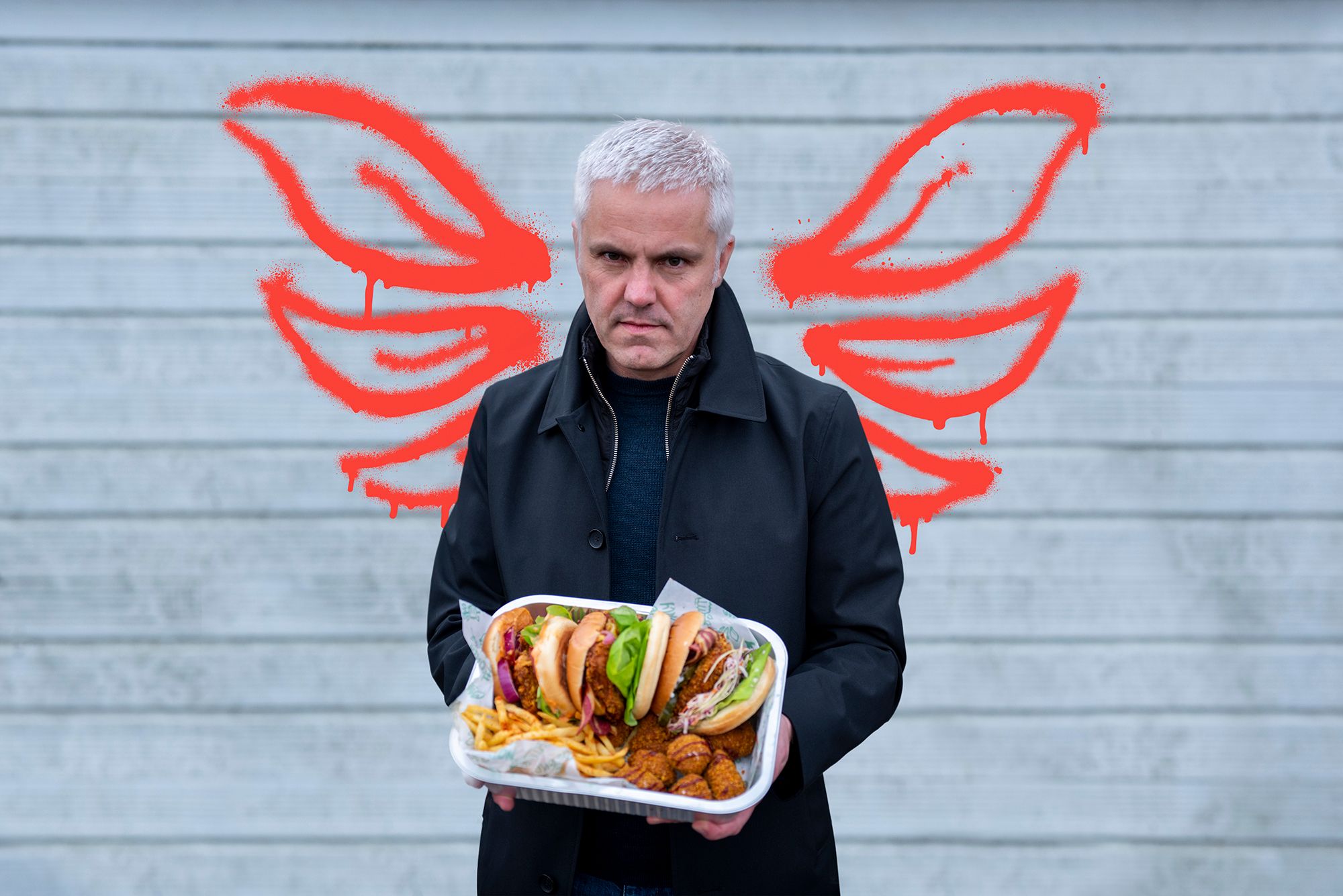Interview with Veganuary Co-Founder and Veg Capital investor, Matthew Glover

We caught up with business activist, Matthew Glover, Co-Founder of Veganuary, Co-Founder of vegan fried chicken company VFC and Managing Director of non-profit investment firm Veg Capital, on the changes taking place in the vegan and plant-based space.
How has the vegan & plant-based sector evolved over the past few years?
Retail sales of meat and dairy alternatives in the UK and Europe have grown by around 10% per year between 2010 and 2020. This can be attributed to the introduction of new products and the underlying trend among consumers to consider health, animal welfare and sustainability in their decision making. But the rise of plant-based sales is coming from a relatively small base and alternatives represent only 0.7% of the market for meat and 2.5% of the dairy market.
What makes a vegan product or a business stand out from the crowd?
Most vegan businesses are striving to compete with animal-based ingredients in three main focus areas – price, taste and convenience. As more energy and funds are invested in plant-based foods, economies of scale are helping make alternative proteins more affordable, scientists and chefs are creating better tasting products in the development kitchens, and retailers/restaurants are allocating more space. But, it’s an increasingly crowded space so to stand out from the crowd vegan businesses also need to engage with consumers on a new level, through innovative marketing strategies and meeting consumers ever changing needs.
IFE launched a new Vegan & Plant-Based Section in 2022, why is it important to meet the people behind the brands and to taste-test products?
I’m delighted to hear that IFE has chosen to allocate a plant-based section at the show. From a movement perspective, it’s important for vegan businesses to not be seen as niche products, but part of the mainstream. There’s a huge opportunity for retailers and food service providers to expand their plant-based offerings, and trade shows provide that opportunity for buyers to sample the latest innovations, and keep abreast of this new trend.
What has it been like watching Veganuary grow over the years?
We’re really proud of what Veganuary has achieved over the past few years. What started as an idea where we hoped a few hundred people would take part, has become ‘a thing’ which is now part of the food scene calendar.
The biggest success has been the impact we’ve had on food manufacturers, retailers and restaurants who have embraced the idea, and now see January as the month to launch new plant-based options. I’m not operationally involved these days, and there’s a really talented team in place to take Veganuary to the next level.
What has been your experience of launching VFC? Were there any unexpected challenges?
Who knew launching a food company was such a challenge?! Launching VFC has been a whole lot of fun, and getting listed in Tesco within 10 months of the website going live shows how fast we’re moving. Our social media following has grown fast, and we have a loyal following of vegan enthusiasts which provides us with a great platform to grow more into the mainstream consciousness.
There have been huge challenges launching during a global pandemic, and the impact that continues to have on transportation, ingredients and supply chains. But, some of the greatest companies launched during difficult economic times and succeeded. We’re well-backed, and fully committed to the cause of sparing chickens from suffering so we’re hopeful that we’ll grow rapidly over the coming years.
As an investor in the vegan food space, are there any specific product types that particularly interest you or which are particularly popular with consumers?
We’re focused on removing animals from the food system, so that means we look at all investments through that lens. We make investments in innovative companies creating direct replacements for meat, fish, egg and dairy products primarily, and any products which are centre of plate (such as pizzas, pies and ready meals).
What was behind the decision to launch Veg Capital as a not-for-profit business? What is the company's mission statement?
We believe that conventional animal agriculture is an inefficient, cruel and unsustainable food production system which is ready for innovation and large-scale disruption. All profits made will be donated to effective UK and European charities that are raising awareness of farmed animal suffering and the environmental impact of animal agriculture, or are working to promote plant-based eating.
Our investors are fully mission-aligned and see this model as the perfect virtuous circle, with profits from our investments going back into raising awareness and creating more demand for plant-based alternatives.
What do you predict for the future of the vegan & plant-based sector?
While the growth of the plant-based food sector is exciting, the category data shows that for the time being meat and dairy remain the dominant protein source in the UK, Europe and elsewhere. The scale and dominance of the meat and dairy market and the small base for vegan alternatives mean that, even at 10% CAGR growth rate, it would still take until the mid 2050s before sales of vegan meat and dairy would surpass sales of meat and dairy.
There are promising signs that meat and dairy companies are dedicating more time and investment to alternative proteins, and there's also increasing investment in plant-based start-ups. With increasing awareness about the environmental impacts of meat and dairy farming, then I hope that governments will stop subsidising these sectors, and start supporting a transition towards a kinder and more sustainable food system. There's a lot of work to do, but as Margaret Mead stated: 'Never doubt that a small group of thoughtful, committed citizens can change the world; indeed, it's the only thing that ever has.'
)
)